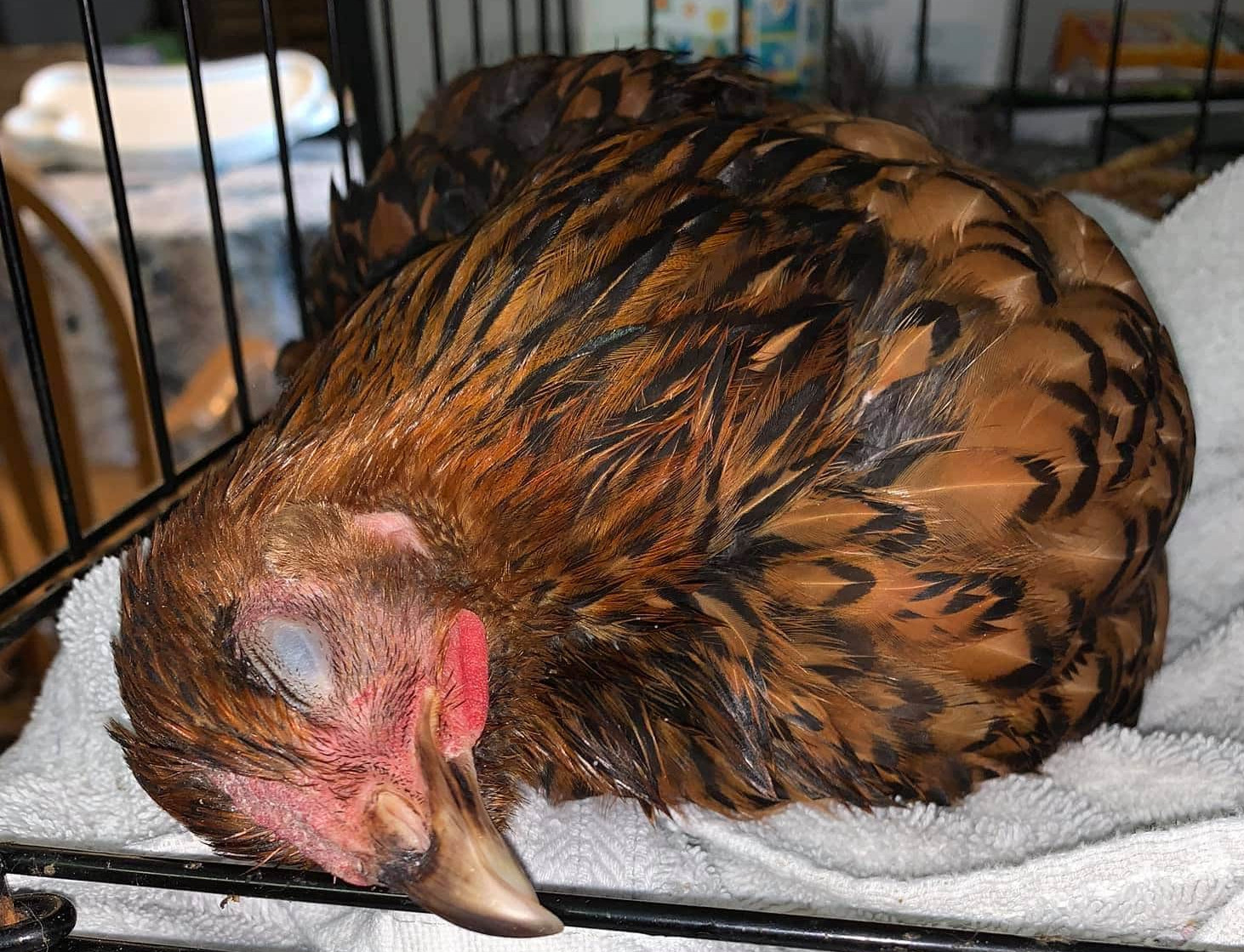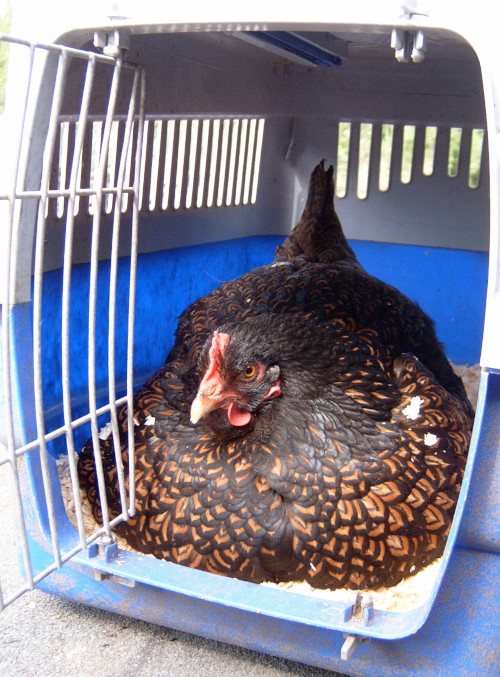How to comfort a dying chicken.

Looking after members of your flock in their last hours can be hard work emotionally but there are a few things you can do to make chickens comfortable as they are dying.
How to comfort and look after dying chickens:
- Keep them away from the rest of the flock. Nobody wants to be bullied at a time like this and any chicken dying from an infection needs to be kept away from the flock.
- Keep your voice quiet. Be patient, calm and keep children and other pets away.
- Find quiet sleeping quarters for your chicken. Make sure the area you choose is clean, quiet and dry as a dying chicken will probably sleep for most of the time.
- Keep your dying chicken warm. The ideal temperature is between 75 F (24 C) and 82 F (28 C). This might seem a little warm for you but a chickens body temperature is a few degrees higher.
- Lower the light levels. It should be just light enough for you to be able to read a newspaper. If the chickens is still agitated you can darken the environment a little more or put a red filter on the light.
- You may need to wrap the chicken in a light cotton towel to stop any flapping. Uncontrolled flapping can injure the bird and cause further distress.
- Reduce external stimuli by placing the chicken in a large cardboard box with plenty of absorbent shavings or straw bedding.
- Provide water for the chicken. A dying chickens will likely not eat at all but a few drops of water delivered from a syringe will keep the mouth and membranes moist and make the bird more comfortable. Always give water one drop at a time and allow the chicken time to process
- Manage any pain and administer medications prescribed by a vet.
- Some fresh herbs in the bedding or a few drops of lavender or menthol oil on the bedding might help to ease the breathing. Normally I would never recommend essential oils in chickens care but easing symptoms is the most important thing at this stage of life.
- Finally, be there for them. Your voice and a gentle touch, such as tickling the neck feathers or cleaning the eyes with warm water may help keep them more comfortable.
It is always difficult to lose pets after they have become a part of your life for so many years and over the years I have myself lost a considerable number of chickens as well as other animals.
Below: A cat box, like this one below, filled with comfortable bedding will help a dying chicken feel a little more secure.

Euthanasia vs letting nature take its course:
Should you euthanize a chicken at the vets or let nature take it's course.
In the past I have done both depending on the circumstances at the time. You should never cull a chickens unless you have been shown how to do it properly.
Euthanasia involves a vet giving the chicken a large dose of a barbiturate anaesthetic to end their life quickly and painlessly while letting nature take it's course is allowing the chicken to die in a natural way.
One of the problems is that chickens tend to hide their injuries or sickness until it is too late and when it does show, it is often too late to do anything about it.
Should you feed a dying chicken?
The most important thing is to give her water and not necessarily food. You can provide a dish of tasty morsels to try and tempt her to eat but it is most likely that a chicken that is dying will not be either eating or drinking.
You should never try to force a chicken to eat as you may choke it.
What to feed a sick or dying chicken:
- A little scrambled or cooked and grated egg.
- A few sunflower seeds.
- Some pellets mixed with warm water to form a mash.
After your chicken has passed away:
You probably won't feel much like doing much straight after losing a pet chicken but you should clean and disinfect the area where the sick chicken was kept and dispose of the body in your manner of choice.
This article part 3 of a four part series:
- Part 1 - How do you know if your chicken is dying.
- Part 2 - Causes of sudden death in chickens.
- Part 3 - Comfort and care of dying chickens.
- Part 4 - After the chicken has died.
